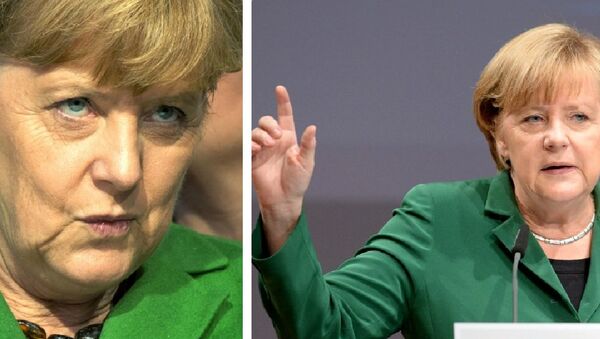"Germany's currency and migration policies are currently destroying European solidarity, and the return to the idea of one's own nation in all European countries is a natural corrective to Brussels centralization," Petry said.
Merkel has drawn strong criticism over her 'open doors' policy over refugees. In the summer of 2015, she made clear Syrian refugees would be welcome in Germany, precipitating a huge movement of migrants from Syria, Afghanistan and Iraq — among other nations — fleeing warzones.
However, the sheer volume of migrants arriving in Germany has caused major strains in many German states, with asylum seekers creating a burden on local authorities. More than 1.1 million entered Germany in 2015 alone.
Merkel — who leads the CDU Party — has refused to bend for call to cap the total number of refugees Germany will take this year, causing anger in Bavaria, where CSU Party leader and minister President Horst Seehofer has had to deal with the flood of migrants coming over the border from Austria.
"I'm not against immigration, but why do you think the respect for other opinions makes immigration a necessity? For decades, there has been a lack of an ideology-free debate on this issue," Petry told Der Spiegel.
Yet such a debate is imperative because the economic and social consequences on both home and host countries are equally momentous, as Oxford economist Paul Collier described in his book 'Exodus'.
"One thing is clear: The immigration of so many Muslims will change our culture. If this change is desired, it must be the product of a democratic decision supported by a broad majority. But Ms Merkel simply opened the borders and invited everybody in, without consulting the parliament or the people," she said.
Titanic
Merkel has also caused anger over her strong support for the European Central Bank and the euro single currency. In an effort to keep Greece in the Eurozone, Merkel has backed a hugely unpopular bailout for Greece, which has seen taxes rise and public spending fall, leading to mass protests. Merkel has refused Athens' requests for debt relief — a cancellation of part of its debts — despite the fact that Germany enjoyed the benefit of debt relief in the aftermath of World War 2.

As the Berlin Policy Journal put it: "refusing to contemplate serious debt relief for Greece in the spring of 2010 was when they began rearranging debt deckchairs on the Titanic."
Merkel's falling popularity has been accelerated by her isolating Germany within Europe. Her plans to relocate refugees across all 28 member states according to a mandatory quota system have met with huge opposition — particularly from Central European states.



